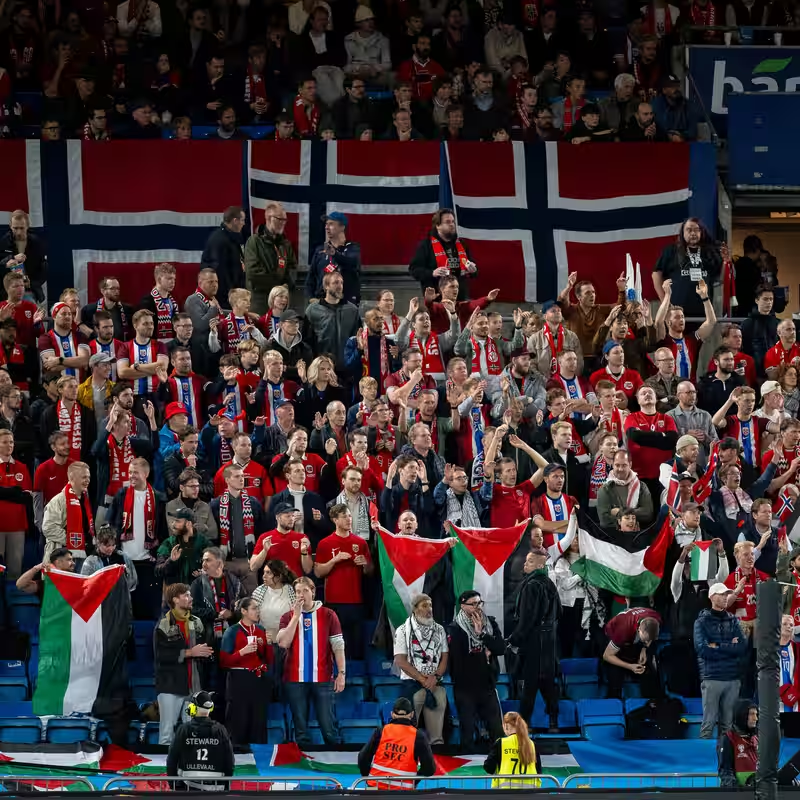World Cup Qualifiers—meant to be a celebration of sport—are turning into flashpoints for political unrest across Europe. As Israel’s national team took the field in Norway and prepared for its upcoming match in Italy, thousands of demonstrators flooded the streets, transforming stadiums into epicenters of pro-Palestinian protest—even after a Gaza cease-fire reportedly took hold .
Table of Contents
- Oslo Erupts Ahead of Norway vs. Israel
- Italy Braces for Mass Demonstrations
- FIFA Stands Firm Amid Global Pressure
- How Protests Are Reshaping the Beautiful Game
- What’s Next for Israel in World Cup Qualifying?
Oslo Erupts Ahead of Norway vs. Israel
The atmosphere in Oslo was anything but sporting on match day. As Israel faced Norway in their World Cup qualifier at Ullevaal Stadium, over 1,500 protesters marched along a 4.2-kilometer route toward the venue, waving Palestinian flags, lighting flares, and chanting slogans . The demonstration, described as one of the largest in recent memory for a sporting event in Norway, prompted heavy police presence—and even the use of tear gas outside the stadium .
Inside the stadium, hostility simmered. Chants and boos echoed through the stands, creating a tense backdrop to Norway’s 3-0 victory . For Israeli players and officials, the experience was a stark reminder that their participation in international football remains deeply politicized.
Italy Braces for Mass Demonstrations
The unrest didn’t stop in Oslo. In Udine, Italy, where Israel is scheduled to play its next World Cup qualifier, organizers anticipated up to 10,000 protesters . Local authorities have heightened security, while pro-Palestinian groups and human rights organizations have renewed calls for a full boycott of the match .
Ticket sales have reportedly slumped, and public sentiment in the region remains divided. While some fans argue sport should remain apolitical, others insist that allowing Israel to compete normalizes actions they view as indefensible—even post-cease-fire .
FIFA Stands Firm Amid Global Pressure
Despite mounting international pressure, FIFA has refused to suspend Israel from competition. Citing its mission to promote peace through sport, football’s global governing body maintains that excluding national teams based on geopolitical conflicts sets a dangerous precedent .
FIFA President Gianni Infantino has publicly urged protesters to remain peaceful, emphasizing that stadiums should be “places of unity, not division” . Yet critics argue that FIFA’s neutrality is itself a political stance—one that ignores calls for accountability.
How Protests Are Reshaping the Beautiful Game
These demonstrations mark a broader trend: sports arenas are increasingly becoming stages for geopolitical expression. From the Olympics to the World Cup, athletic events are no longer insulated from global conflicts.
In this case, Israeli soccer officials reportedly anticipated the backlash would continue regardless of developments in Gaza—including the recent cease-fire . Their expectation underscores a sobering reality: for many protesters, the issue transcends temporary truces and speaks to deeper grievances over long-term policy and international complicity.
What’s Next for Israel in World Cup Qualifying?
With matches in increasingly hostile environments, Israel’s path through the European qualifying group grows more complicated—not just tactically, but logistically and emotionally. Security concerns, fan safety, and potential disruptions loom over every fixture.
Yet the team presses on. Whether they can focus on football amid the firestorm remains to be seen. One thing is certain: as long as the conflict persists in public consciousness, so too will the protests—even on the hallowed turf of World Cup qualifiers.




